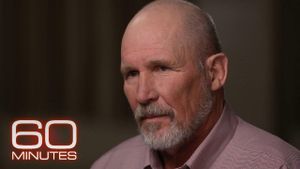The British Government is stepping up its game when itcomes to online gambling, announcing new measures aimed at capping the stakes for slots and tackling gambling addiction. The Department for Culture, Media and Sport (DCMS) has revealed this initiative will impose limits on how much players can bet on online slots, reflecting growing concerns around the rapid increase of gambling-related issues, particularly among younger adults.
Specifically, adults aged 25 and over will see their maximum spin capped at £5, whereas those aged 18 to 24 will face even stricter limits of £2 per spin. This reform signals the government’s commitment to safeguard vulnerable demographics and target at-risk players. Baroness Fiona Twycross, the Gambling Minister, emphasized the necessity of these measures, stating, "We are helping to protect those at risk, with a focus on young adults by introducing stake limits for online slots." This demonstrates the government’s proactive approach to addressing increasingly high cases of gambling addiction.
According to data from charity GamCare, online gambling addiction has skyrocketed, with 45% of calls to the National Gambling Helpline during the last year related to online slots. This is up from 34% just two years ago. Consequently, the NHS has reported treating more people for gambling problems than ever before, with referrals doubling compared to the previous year. Claire Murdoch, national director for mental health at the NHS, reinforced the urgency of this issue, saying, "Problem gambling can completely ruin lives, and the issue has skyrocketed, with NHS services treating record numbers. This growing problem necessitates dedicated treatment efforts."
To fund these efforts, the government intends to introduce what will be the first legally mandated tax on gambling operators. This will generate approximately £100 million for research, prevention, and treatment of gambling-related harms. Half of this funding is set to be directed toward NHS-led gambling treatment programs. By ensuring all gambling firms contribute fairly to this levy, the government aims to address the inequalities of the previous voluntary system, where some companies contributed as little as £1 per year.
During the consultation period from October 2023 to January 2024, the government gathered insights from clinicians, academics, and the general public about the levy’s design and implementation. The response reflects widespread support for this actionable step toward supporting diagnostics and treatment methods to help those adversely affected by gambling. Baroness Twycross reiterated the goal behind these reforms, remarking, "Gambling harm can ruin people’s finances, relationships, and lives; we are absolutely committed to implementing strengthened measures for those at risk."
While the gambling industry’s leading lobby group, the Betting and Gaming Council, has acknowledged the potential benefits of these changes, voices from within the industry have expressed concern. They argue the government may be overstepping and losing sight of the recreational aspects of gambling enjoyed by millions, with the statistics indicating just 0.4% of the adult population are problem gamblers. Grainne Hurst, CEO of the Betting and Gaming Council, pointed out, "Ministers must not lose sight of the fact the vast majority of 22.5 million people who enjoy betting each month do so safely."
Still, advocates for gambling reform reaffirm the need for regulatory changes geared toward protecting at-risk individuals. Independent campaigner Will Prochaska invoked strong comparisons saying, "We wouldn’t allow Big Tobacco to control lung cancer clinics, and we mustn’t let Big Gambling control mental health services either." His assertion highlights the concerns many reform advocates share about gambling companies' involvement and influence over mental health treatment and resources.
This reform package not only aims to curb gambling addiction but also focuses on fostering safer gambling environments for operators and players alike. With the introduction of stake limits and mandatory levies, the UK government appears to be leading the way to reshape the gambling scene for the welfare of its citizens.
The concerns surrounding addiction are not merely statistical; they're tangible realities affecting families and relationships across the country. Going forward, these reforms may mark the beginning of the end for unregulated highs of online betting, aiming instead for measured, responsible gameplay. The movement signals hope for reform supporters who believe the gambling industry needs to take greater responsibility for its societal impact.
All eyes will be on how effectively these measures are implemented and their long-term impact on both gamblers and the industry. For now, the UK government remains steadfast on its path to overhaul online gambling, showcasing its commitment to fostering safer practices and supporting vulnerable groups within society.



